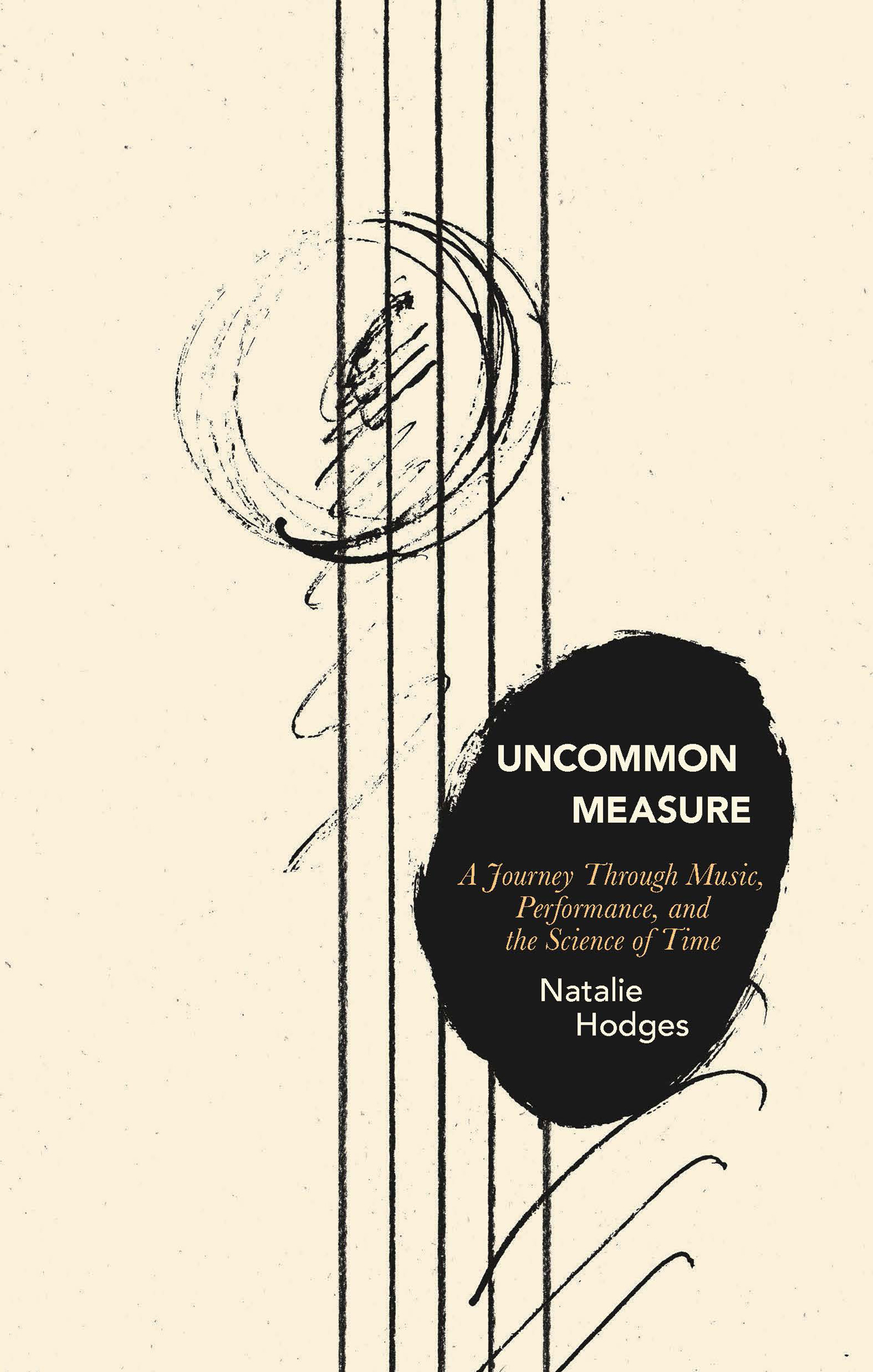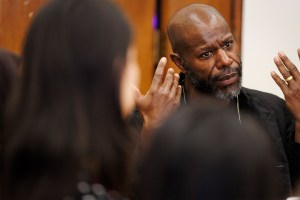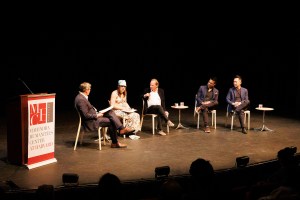Like plunging over a waterfall
Natalie Hodges ’19 details how she immersed herself in violin amid struggles with racism, family discord and how she got free

Natalie Hodges ’19: “If you want to change the past, it seems, perhaps all you have to do is write it.”
Photo by Krista Mercer Buchenau
Editor’s note: This article has been updated to attribute biographical details to recollections published by Natalie Hodges in her memoir.
Natalie Hodges was a senior in high school, and this was to be her last performance of the year. “I tasted the sour smack of vomit as I walked onstage,” she would later write about the day. Despite her anxiety, her rendition of Paganini’s “La Campanella” (“The Little Bell”) was going well, “almost unbelievably well, in fact.” But then she sensed that “weird, psychotic certainty” that she would botch that one critical part. Hodges tensed up. She white-knuckled her bow, but it didn’t help: Just before the last chord, it clattered to the floor.
Hodges ’19 recounted this painful memory in her senior thesis-turned-book, “Uncommon Measure: A Journey Through Music, Performance, and the Science of Time.” What started as a collection of personal essays on her all-consuming dedication to violin, performance anxiety, and family conflicts grew into an uncommon blend of memoir alongside explorations of the neuroscience of anxiety and improvisation, quantum physics and time, and the pressure put on Asian Americans, like Hodges and her Korean American mother, to assimilate into white culture. The book also explores the unbreakable bond between mother and daughter, one that made it possible for the young woman to remake — or rewrite — her life.
“If you want to change the past, it seems, perhaps all you have to do is write it,” Hodges wrote.
Growing up in Denver, Hodges and her three siblings started playing string instruments when they were 5 years old. Hodges didn’t immediately fall for hers, the violin, nor did she experience performance anxiety at first. “Up through middle school, I hated practicing,” Hodges said in an interview. “And when I’d get onstage, I would feel like I played super, super well. I had so much unearned confidence because I didn’t care as much.”
Then, in her first year of high school, Hodges decided she wanted to pursue a career as a solo violinist. “I was like, ‘OK, I think I want this. I want this because, I don’t know, it’s kind of the one thing that I’m good at, and I should try to go for it, so I don’t regret not doing that later,’” she said. That’s when the anxiety started to creep in. “It was like it could infect me,” she said.
Almost every night, Hodges stood before a mirror in her house, practicing into the wee hours. Often, she’d rouse her mother (whom she calls Uhmma, the Korean word for mother) at 1 a.m. or later and ask her to practice with her. Uhmma always rose without complaint. Hodges recalls her father, on the other hand, as a monied New England WASP who appeared to hate all music but church hymns. He forbade singing or whistling in the house, she writes in her book, stared at his phone during Hodges’ performances (she could see the blue electronic glow lighting his face), and believed her mother was mentally ill, diagnosing her as “a perfectionist mother” for encouraging her kids’ dedication to classical music. He left the family in 2016 to marry another woman, but not, Hodges asserts, before he pulled on his son’s arm hard enough to dislocate his elbow and hit his wife with enough force to burst cesarean stitches.

Outside the house, Hodges and her mother faced racist attitudes — her mother was labeled a Tiger Mom, and after one performance, a police officer spotted the two together and said to Hodges, “Oh, so you’re a half-breed!” Hodges said the pressure to assimilate made it feel as though she were constantly auditioning to fit in. “If you’re an Asian kid who plays violin, you really better be good,” she said, “because the only thing worse than confirming the stereotype is undercutting it.”
In response Hodges focused on the violin.
“I do wonder,” Hodges said, “if all the uncertainty I wasn’t addressing about my life would in some ways get concentrated on this one arbitrary part in the piece. When you’re a teenager in high school and college, you’re grappling with identity. And for me, all the anxiety I had about proving myself, not knowing what or who I really was, or what I really wanted to do, wanting my family to stay together, being a person who’s half and half and not one thing or the other completely. There’s an inherent alienation that got put into the music, and the music became this way of holding them. Like, you can’t mess up because there’s a whole identity, a whole past, and the whole family that is riding on this.”
By the time Hodges got to Harvard, cracks were forming in the bond between her and the violin. Performance anxiety made her feel ill or turned her arms numb. Her fear of failure became self-fulfilling.
So, when she started writing her thesis, with guidance from science journalist Michael Pollan, Hodges turned to science for explanations. Why, she wondered, does anxiety mess with time, halting it, in a way? To her relief, recent neuroscience shows that stress muddies that part of the brain that allows musicians to feel the music’s tempo — to, in short, slip inside time.
Writing, unlike playing, became a way of escaping time, like a quantum particle. Instead of getting one shot to prove herself, she could stop, put the words aside, and they’d still be there, waiting for her the next day.
Over time, she realized her writing was, as she wrote in the opening of her book, a way to change her past and future, too. “The real conclusion I’ve come to is that, fundamentally, I don’t want to play [violin] in the same way anymore,” Hodges said. “I don’t want to be the person I used to be.” Rather than follow that strict, controlled path toward a future she wasn’t sure she wanted, she decided to try something new: improvisation, or what she describes as falling over a waterfall again and again.
Today, Hodges still plays violin, but instead of tackling infamous solo parts, like the Bach “Chaconne,” she gigs with bands, playing weddings, funerals, and parties. And while she still considers herself a violinist, and now a writer, she’s trying not to tether herself to labels.
“You can tell yourself that you’ve got all these plans that will demarcate the future, mark your way out. But they are so, so illusory,” Hodges said. “I didn’t want to feel like I was plunging over a waterfall at every second. But now I’m just like, yeah, I guess that’s what we’re doing. That’s just life.”




